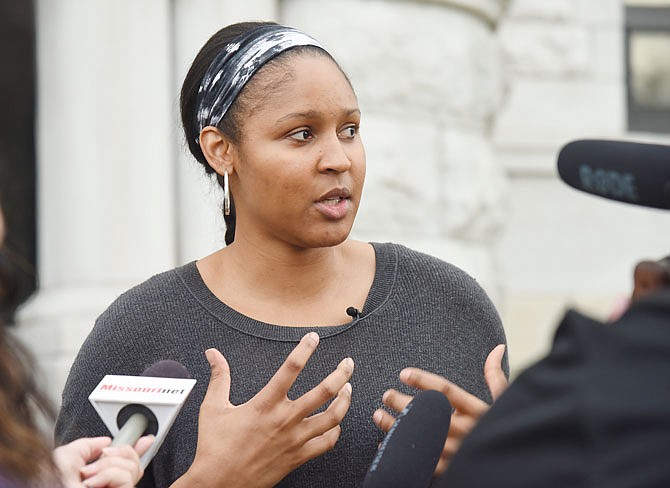A Cole County judge has granted a motion to compel the Missouri Highway Patrol to submit photographic evidence for testing in the case of a man currently serving a 50-year prison sentence in a 1997 burglary and shooting in the St. Louis area.
Judge Dan Green granted Jonathan Irons' motion that evidence be sent to the Automated Fingerprint Identification System with conditions that Irons' defense team direct that their independent lab transfer all documents and evidence related to the fingerprints, including photographs of fingerprints, to the patrol.
The patrol is then ordered to search the photographs through the AFIS database, if the patrol determines that is possible.
Green wants results to be shared with him and both sides in this case as soon as possible. Irons' defense will pay all costs associated with the transfer and search of fingerprints.
This is the latest chapter in Irons' efforts to get his case reopened via the civil suit he filed in 2018 in Cole County against the Missouri Department of Corrections.
Irons has gotten national attention, in part due to his efforts being supported by Maya Moore, a Jefferson City native who stepped away from her career in the WNBA last year to spend time helping Irons, who is a family friend, get his conviction overturned.
Moore said last week she doesn't plan to play this season and will continue to help with Irons' case.
Irons has been incarcerated for the past 23 years after he was convicted in the non-fatal shooting of a homeowner during a burglary.
In October, Moore was in Green's courtroom as Irons' defense team called several witnesses, including an independent investigator and an eyewitness identification expert, who said they had examined available records and there was no physical evidence such as DNA, fingerprints or footprints linking Irons to the crime.
Irons, then 16, had been seen in O'Fallon the evening of Jan. 14, 1997, with a gun, according to court records. The victim returned home and confronted a burglar. Shots were fired, and the victim was hit in the right temple. A week later, Irons was arrested. The detective in the case said Irons had confessed, but the detective wasn't available to be cross-examined at trial because he was ill; he has since died.
During the October hearing, Irons took the stand in his own defense.
At the time the crime occurred, Irons was selling marijuana. When he was picked up by authorities, he thought it was for illegal drugs. Irons said he did not hear he was being charged with the burglary and shooting until his first court appearance. His defense has argued the detective in the case tried to make him admit to the crime during an interrogation after his arrest and he was never read his rights.
The eyewitness expert testified he had reviewed reports from the investigation and the victim was shown to have not been sure who attacked him when he was given a mugshot lineup that included Irons' picture. The expert also said police had encouraged the victim to guess who looked like the attacker.
Much of the testimony in October was based around fingerprint evidence. Irons' defense claimed several of the fingerprints found at the crime scene matched the victim. However, the attorneys said, none matched Irons and one was never identified.
Irons' lawyers want the Highway Patrol to test the print from the unknown person, as it could lead to the person who actually committed the crime.
Lawyers for the Missouri Attorney General's Office, representing the Department of Corrections, argued Irons should remain in prison and said they have evidence showing Irons' defense team at the time had all the information they needed to properly defend their client.
Lawyers for the attorney general also noted Irons has filed petitions regarding his case in the past, but he has been denied any relief.
Moore has a petition on change.org to spread the word about Irons and started a related social action campaign called Win With Justice.

